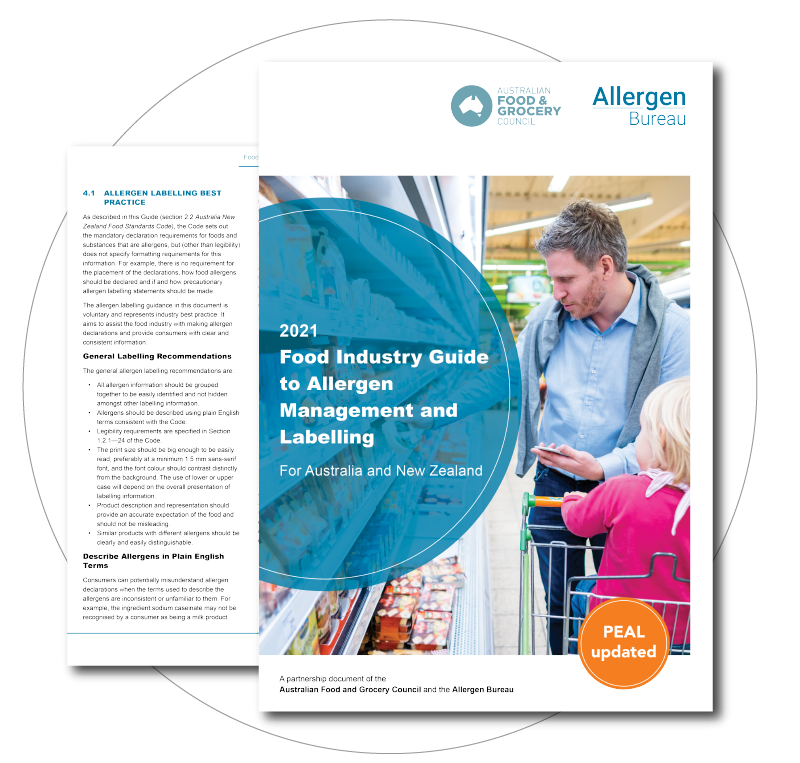
The Allergen Bureau is constantly scanning the media and internet to provide you with current and useful information relating to the management of food allergens in ingredients and manufactured products. The following list is continually growing, but is far from exhaustive. If you find information that you feel would be relevant to this site, please forward details to us at info@allergenbureau.net
All these resources are conveniently placed in our quick reference guide below
Access the Resources
Just click a tab below on the area of interest to you.
The PIF is a comprehensive form designed to assist with validation and verification of products and ingredients in relation to allergen statements, labelling compliance, nutrition claims and claims about dietary suitability or sustainability. The PIF also collects information relevant for quarantine risks, product durability, the presence of dangerous or hazardous substances, packaging materials etc.
Product Information Form (PIF)
The National Allergy Strategy food service project aims to support the food service sector to cater for individuals with food allergies, understanding that both the consumer and food service staff have responsibilities. Designed to assist proprietors and workers in any food business to gain knowledge about food allergens, and to develop best practice procedures for making their food business safe for customers with allergies.
All about allergens training for food service
Australia New Zealand Food Standard 1.2.3 - update
Allergen Labelling Guidance
EU Allergen Labelling Exemptions
Health Canada Preventive Controls for Food Allergens Gluten and Added Sulphites
USFDA Food Allergens/Gluten-Free Guidance Documents & Regulatory Information
Food Allergens International Regulatory Chart (FARRP)
E-Seminar: Introduction to food allergen risk assessment
Food Allergens Risk Assessment Part 2
The Food Allergen Management Consensus Statement was developed through industry stakeholder meetings. The statement recognises that food allergen management responsibilities are combined, and rely on the shared responsibility of consumer, the packaged food industry and food service establishments, along with health professionals, retailers, and regulatory and enforcement agencies to provide safe food choices to food allergic consumers. Click below to download the summary or access the full paper.
Food Allergen Management Consensus Statement
Stakeholder Consensus Statement Full Paper (Paid)
Risk assessment of food allergens: part 1: review and validation of Codex alimentarius priority allergen list through risk assessment: meeting report
Coce of Practice on Food Allergen Management for Food Business Operators CXC
In brief: risk assessment of food allergens: exemptions from mandatory food allergen declaration
Risk assessment of food allergens: part 1: review and validation of Codex alimentarius priority allergen list through risk assessment: meeting report
Risk assessment of food allergens: part 2: review and establish threshold levels in foods for the priority allergens: meeting report
Risk assessment of food allergens: part 3: review and establish precautionary labelling in foods of the priority allergens: meeting report
Risk assessment of food allergens: part 4: establishing exemptions from mandatory declaration for priority food allergens: meeting report
Risk assessment of food allergens: part 5: review and establish threshold levels for specific tree nuts (Brazil nut, macadamia nut or Queensland nut, pine nut), soy, celery, lupin, mustard, buckwheat, and oats: meeting report


